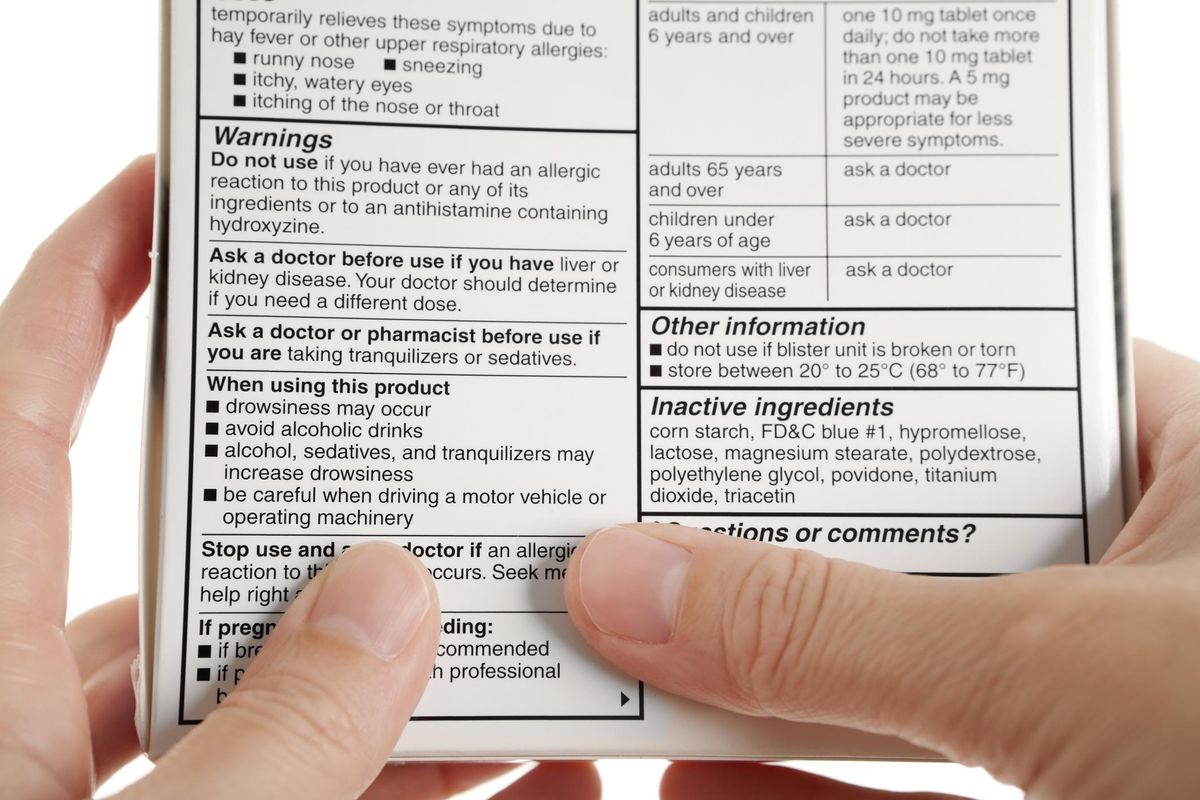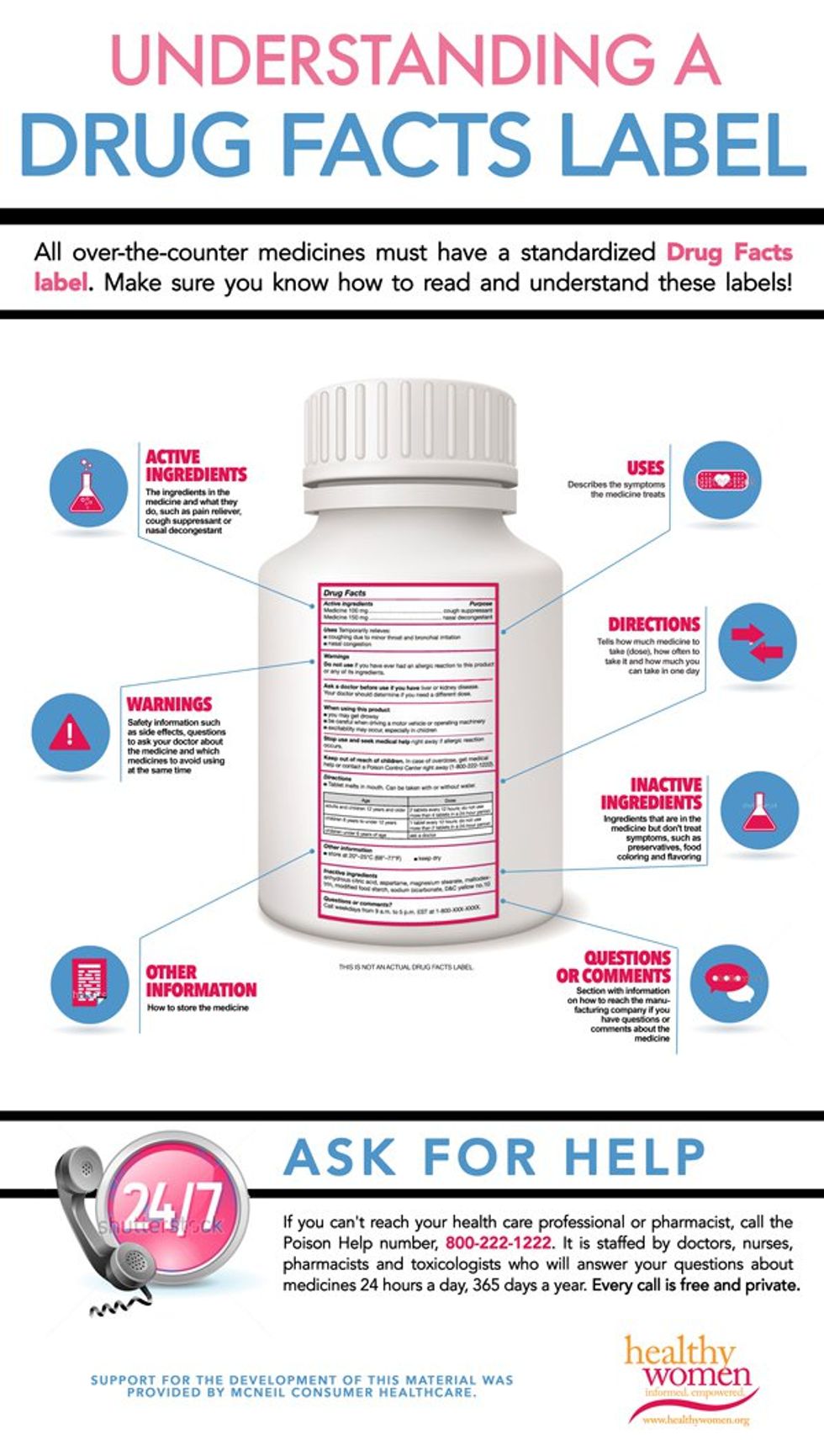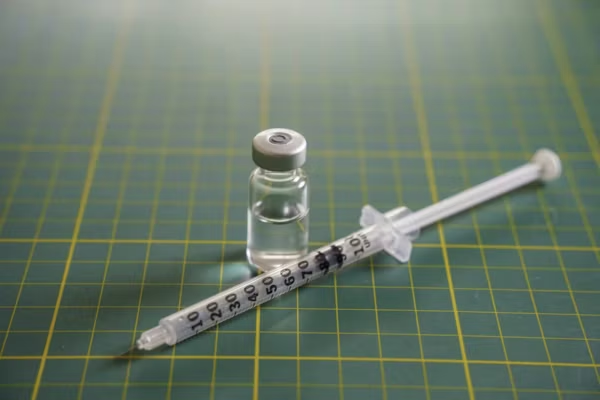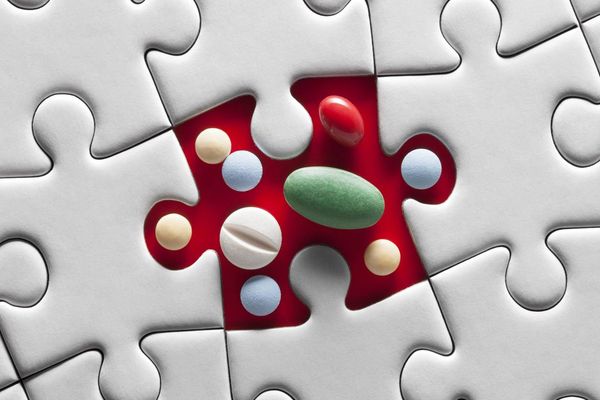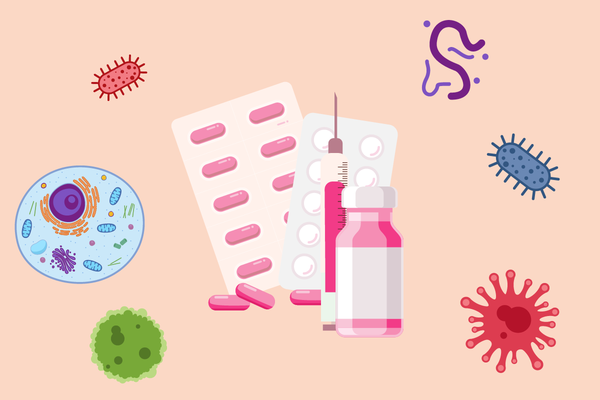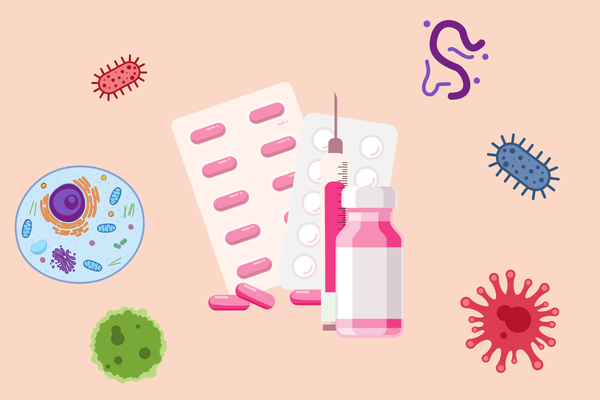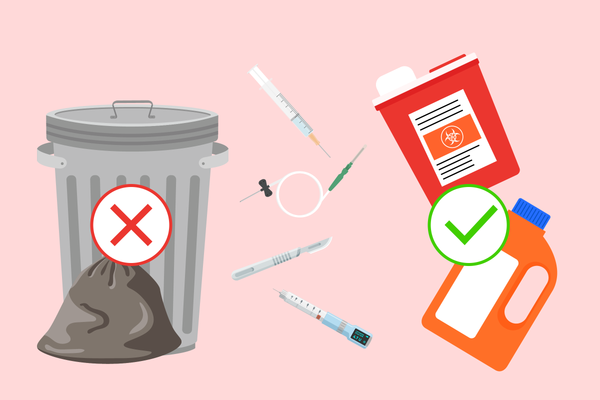Q:
How important is all the information on the labels of over-the-counter medicines?
A:
The Drug Facts label is a standardized label that appears on all over-the-counter (OTC) medicines approved by the Food and Drug Administration. It is designed to tell you the purpose of the medicine, who should take the medicine and how to take it safely. It's very important to read all the information on the label every time you want to take or administer a medicine because labels change regularly.
This illustration explains how to read and understand a Drug Facts label.
Here's some more helpful info:
Active ingredients. Medicines may have more than one active ingredient. You want to avoid taking or administering more than one medicine at a time that contains the same active ingredients. For example, don't give your child two medicines with acetaminophen at a time. If you are considering giving two medicines that list different ingredients that do the same thing (such as the pain relievers acetaminophen and ibuprofen), check with a healthcare professional to find out if it's safe to take both. In addition, medications may have additional active ingredients that are not necessary for what you are treating. For example, a medication may have ingredients to treat both a cough and a fever while your child is only experiencing a fever. Avoiding unnecessary active ingredients will help to avoid unnecessary side effects.
Uses. This is pretty self-explanatory, but, again, it's important to use a medicine that treats only the symptoms you have.
Warnings. Always read this section. It is very important, for example, to know about any potential side effects the medicine could cause; what to do if side effects occur; what other medicines should not be taken with this medicine; when to ask a doctor before use; and what conditions may make the medicine unsafe for you to take. This section may also include a reminder to keep the medicine out of the reach of children and other crucial safety information.
Directions. This is the part most of us look for—and it is vital. Carefully read and follow this section so you can help ensure sure that you're giving the exact dose and not re-dosing too soon. Directions on all medicines are not just suggestions or guidelines. They are meant to be followed.
Other information. This is near the bottom of the label but keep reading. If you don't store your medicine properly it may be ineffective when you need it.
Inactive ingredients. These ingredients do not treat symptoms, but they can cause reactions in people who have allergies, so read the list.
Questions or comments. Some medicines include a section with information on how to reach the manufacturing company if you have questions or comments about the medicine.
If you don't understand something on the label, contact your local doctor, nurse or pharmacist. If it's after hours, you can call the Poison Control Center at 800-222-1222. It is available 24 hours a day, 365 days a year, and a trained expert will answer your questions. You can call the Poison Control Center for any medicine-related questions—it doesn't have to be an emergency. It's free and private!

